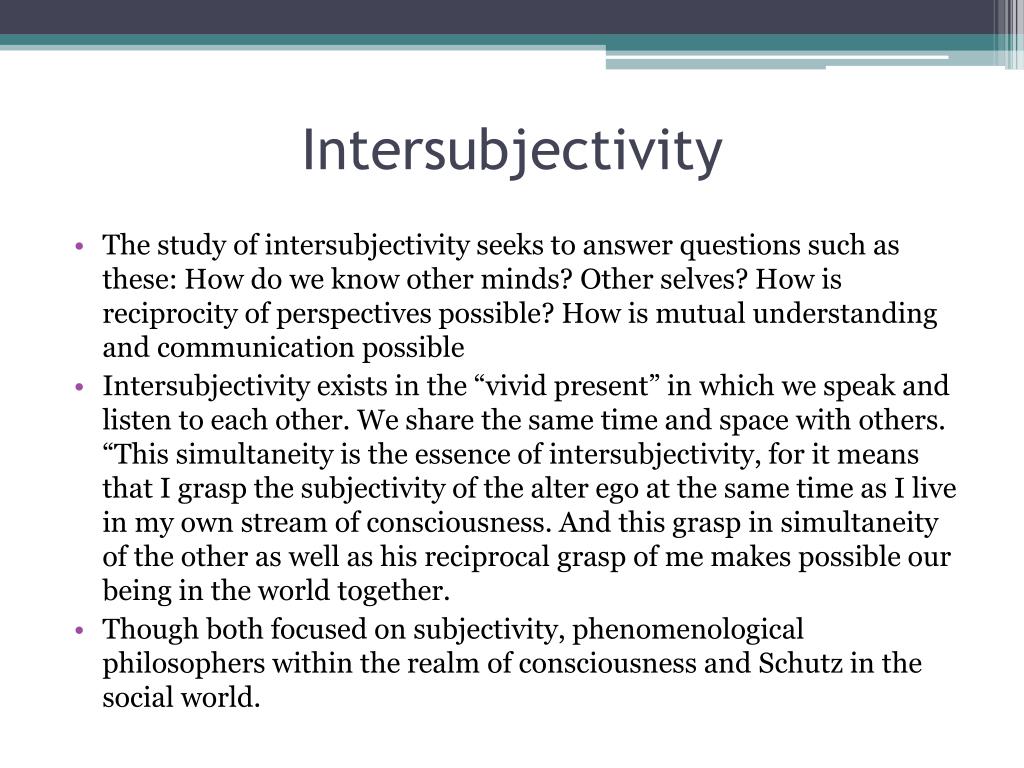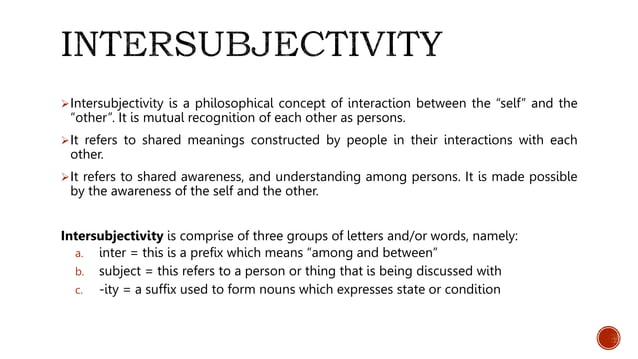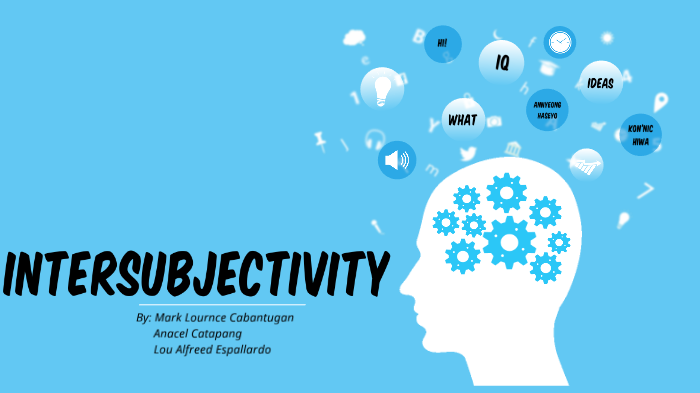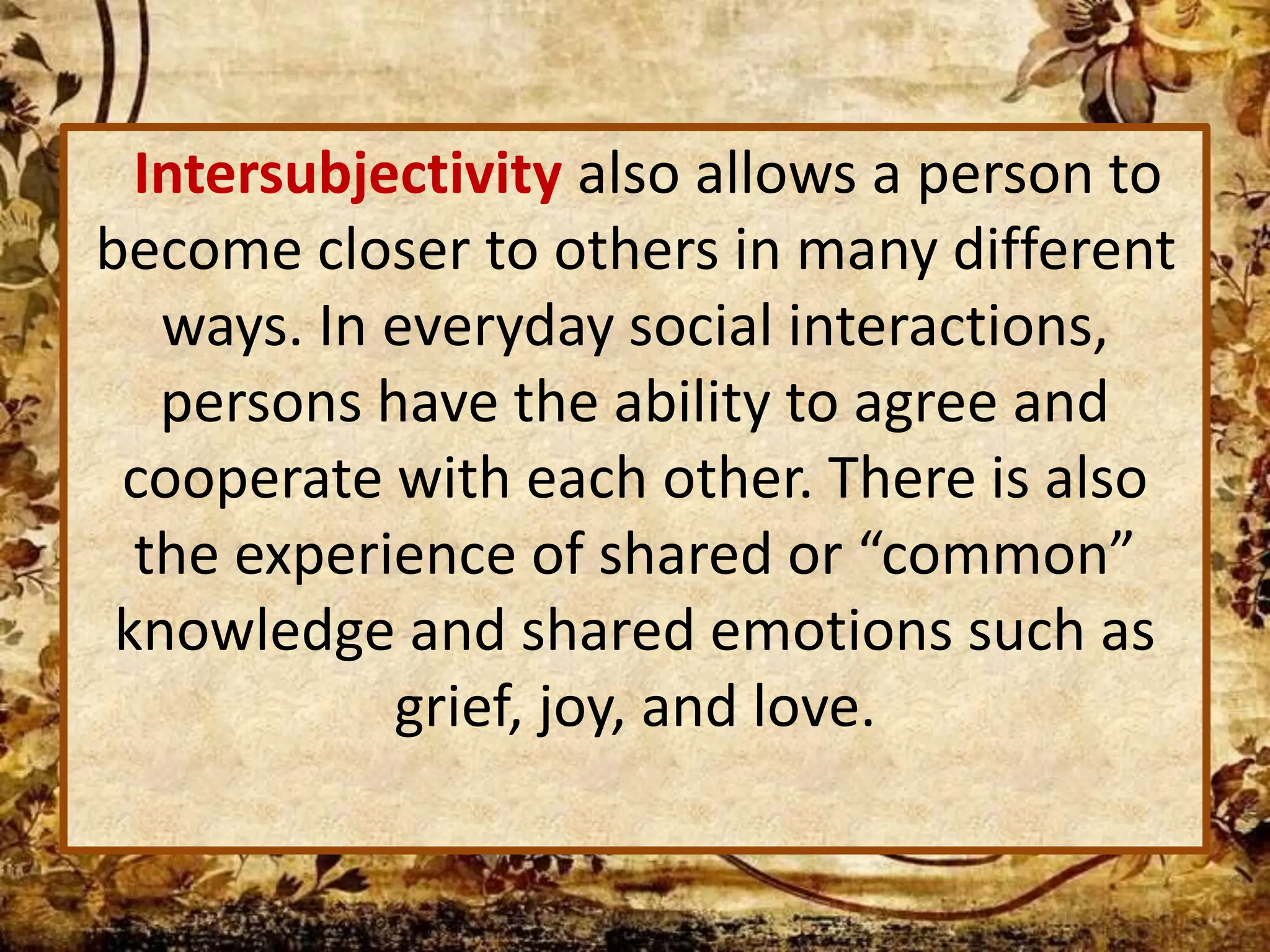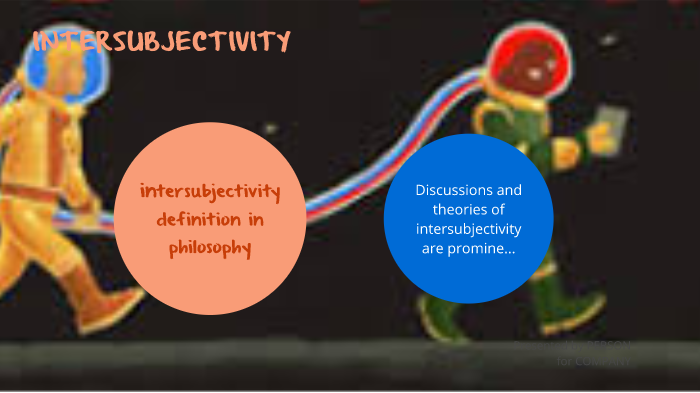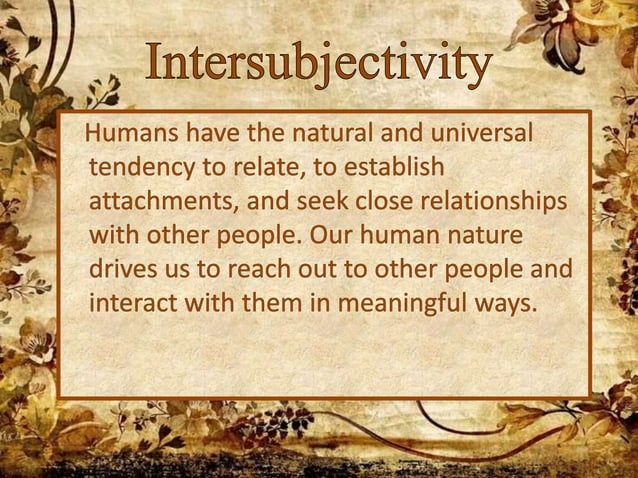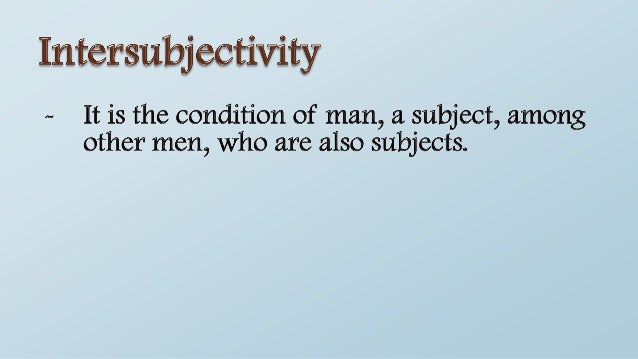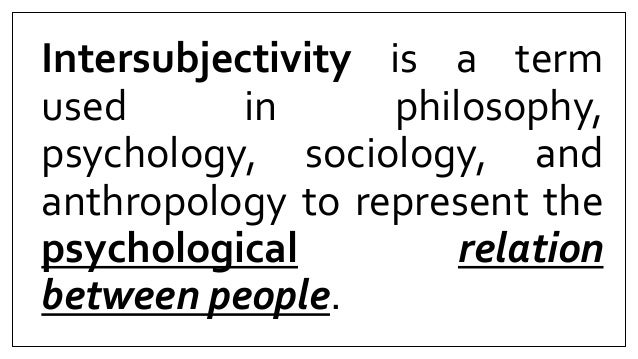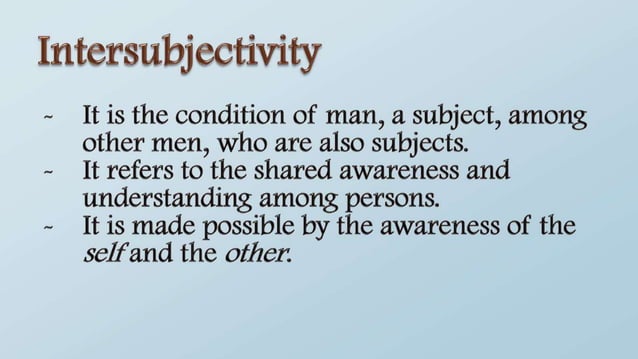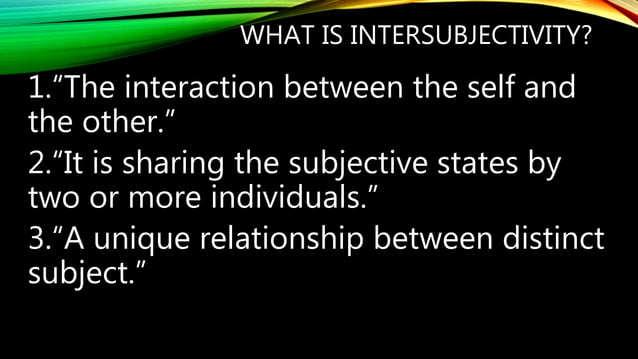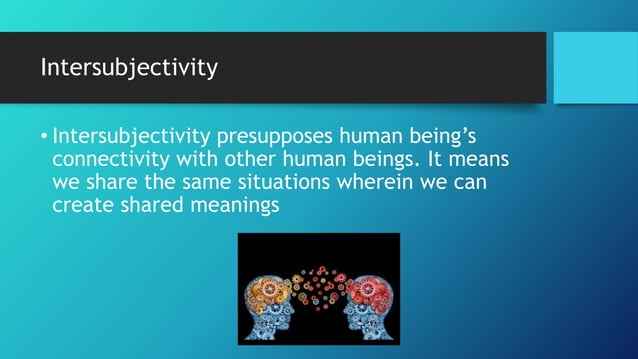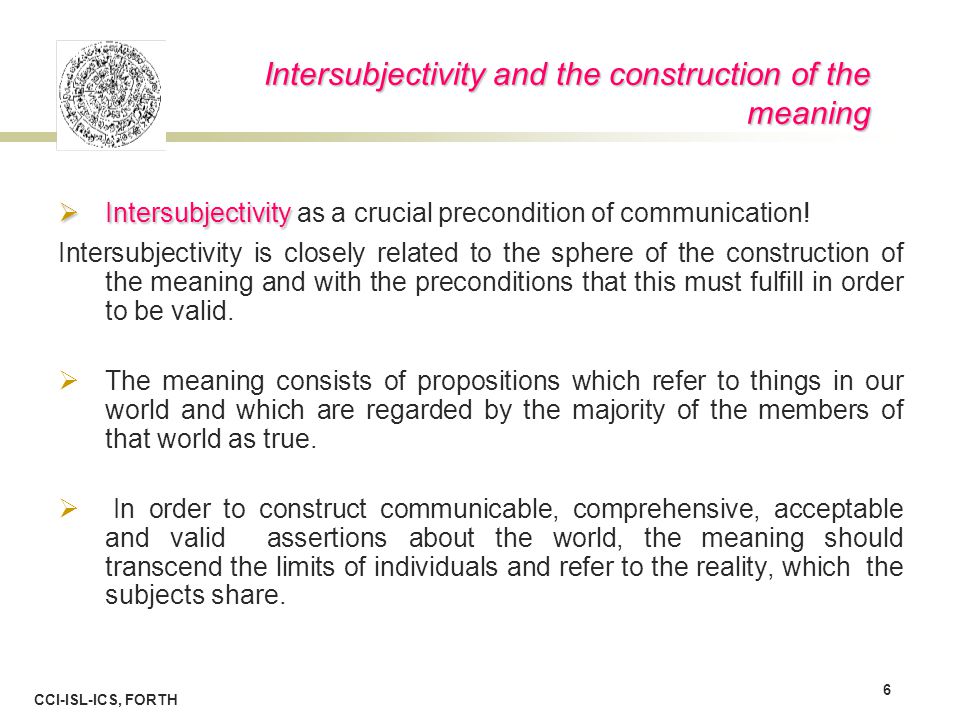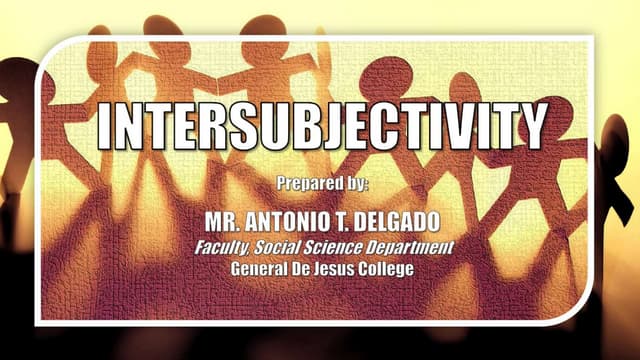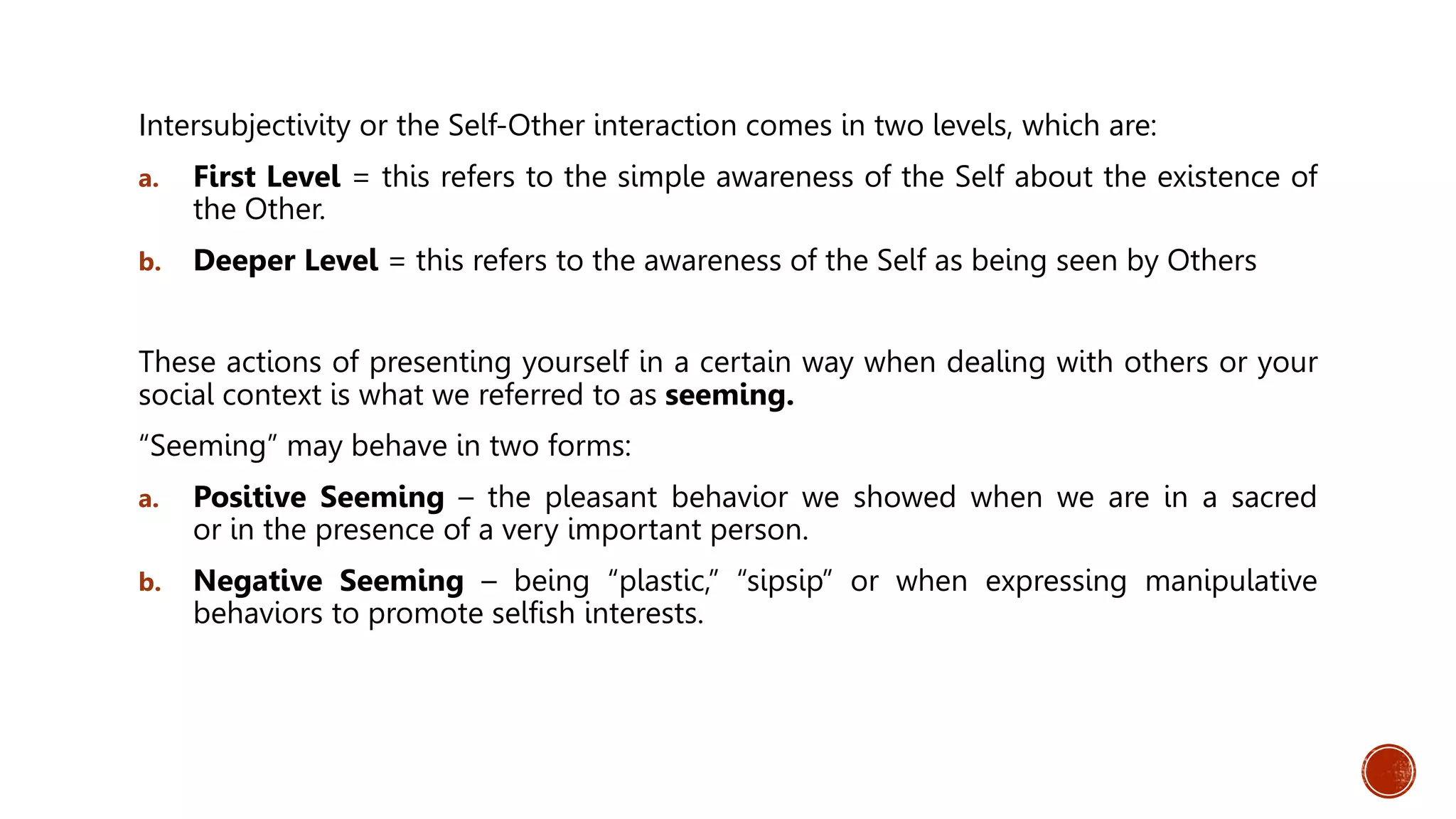Intersubjectivity Meaning In Tagalog

The concept of intersubjectivity, the shared understanding and agreement that allows for meaningful communication and social interaction, has become increasingly relevant in the Philippines, particularly in fields like education, psychology, and sociology. But what does "intersubjectivity" truly mean in the context of the Tagalog language and Filipino culture? The subtle nuances and cultural interpretations add layers of complexity to this crucial philosophical idea.
This article delves into the meaning of intersubjectivity, exploring its Tagalog translations, its significance within Filipino values, and its implications for various aspects of Philippine society. It seeks to clarify how this concept, essential for building bridges and fostering empathy, is understood and applied in a Filipino context.
Understanding Intersubjectivity
Intersubjectivity, at its core, refers to the psychological relation between people. It's the possibility of understanding another person's subjective experience. This includes their thoughts, feelings, and intentions.
Philosophically, it's the idea that our own consciousness is shaped by interactions with others. We are not isolated individuals, but rather beings constantly influencing and being influenced by those around us. This shared reality is what allows us to connect and build communities.
Tagalog Translations and Interpretations
Translating "intersubjectivity" directly into Tagalog proves challenging. There isn't one single word that perfectly captures its multifaceted meaning.
However, several Tagalog terms come close. These include: "pagkaunawaan," meaning mutual understanding, and "pakikipagkapwa-tao," referring to a sense of shared humanity and empathy.
The concept of "pakikipagkapwa-tao" is particularly significant. It emphasizes treating others as fellow human beings, recognizing their dignity and worth, and acting with compassion.
Intersubjectivity in Filipino Culture
Filipino culture is deeply rooted in communal values. Concepts like "bayanihan," working together for a common goal, and strong family ties highlight the importance of intersubjective understanding.
"Pakikisama," the practice of maintaining good relationships and avoiding conflict, also plays a role. While sometimes criticized for potentially hindering individual expression, it underscores the desire for social harmony and shared understanding.
The emphasis on respect for elders ("paggalang") and social reciprocity ("utang na loob") further illustrates the culturally ingrained awareness of the interconnectedness of individuals within a community.
The Influence of Colonial History
The Philippines' colonial history has undoubtedly shaped its understanding of intersubjectivity. Centuries of foreign rule have influenced power dynamics and social hierarchies.
This history has also led to a complex relationship with concepts like individualism and collective identity. Filipinos often navigate a delicate balance between personal aspirations and the demands of their community.
Understanding this historical context is crucial for appreciating the nuances of how intersubjectivity is practiced and understood in the Philippines today. The constant negotiation of identity within a larger social framework remains a defining characteristic.
Intersubjectivity in Modern Philippines
In today’s rapidly changing Philippines, intersubjectivity remains a vital concept. It is essential for addressing issues such as social inequality and promoting inclusive development.
Efforts to bridge cultural divides and foster dialogue between different groups rely heavily on the principles of mutual understanding and empathy. Recognizing the validity of diverse perspectives is crucial for building a more just and equitable society.
Moreover, intersubjectivity plays a critical role in mental health and well-being. Strong social connections and a sense of belonging are essential for fostering resilience and promoting mental wellness in the face of adversity.
Challenges and Opportunities
Despite its importance, several challenges hinder the full realization of intersubjectivity in the Philippines. These include persistent social inequalities, limited access to quality education, and the spread of misinformation.
However, there are also significant opportunities. The growing awareness of the importance of mental health, the increasing use of technology for social good, and the active engagement of civil society organizations are all positive developments.
By embracing the principles of intersubjectivity, Filipinos can build stronger communities, foster greater understanding, and create a more just and equitable society for all. Promoting pakikipagkapwa-tao and nurturing pagkaunawaan are essential steps towards realizing this vision.
Looking Ahead
Moving forward, promoting a deeper understanding of intersubjectivity in the Tagalog language and Filipino culture is crucial. This requires continued dialogue, education, and critical reflection on the country's history and values.
By embracing the power of shared understanding and empathy, the Philippines can unlock its full potential and build a brighter future for all its citizens. This means actively working towards a society where every individual feels valued, respected, and understood, fostering a true sense of bayanihan in the modern world.
